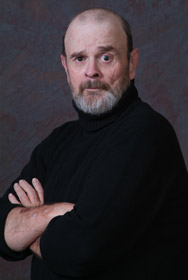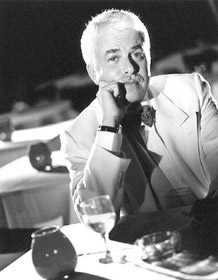There are a lot of writers in a collateral branch of my family — John Gregory Dunne is a cousin of mine, and his brother Dominick Dunne. And my father was Irish, and of course there’s a tradition there. And I put out a neighborhood newspaper when I was nine. In high school I worked for the literary magazine and the annual and the newspaper, writing for all of them. And I was sort of the all-purpose go-to guy for captions and intros and all of that stuff that needs doing and nobody else wanted to do. And I loved doing it. I still love doing it.
Here’s a story: When I got to the Chronicle, I was nineteen and I was working on a section that no longer exists called “This World,” which was sort of a news round-up section…. The first day I was there, I was given assignments, and the idea was, you’d turn it in and they’d give you another. And I did six stories. And an old hand came over and told me to slow down, that I was making the rest of them look bad, and that I should know that my quota was around three. So I took it to heart. I didn’t want to piss anybody off. So I did the three.
When you moved into column writing, was that a relatively easy transition?
Well, there was a whole period in between where I was a magazine editor. I wrote only occasionally, and once again [it was] captions, headlines, an editor’s note, things like that. And I was always looking for a chance to write. It’s just that in 1970 there was money in magazine editing and not a lot of money in freelance writing, and I couldn’t get a staff job on a magazine; there weren’t many staff jobs on magazines.
Then when I got back to the Chronicle and was asked if I could provide samples for a column, it seemed to me like I had a million ideas and there was just stuff all over happening, none of which I’d been able to write about. So that was pretty easy. There’s an A. J. Liebling quote that “I can write better than anybody who can write faster, and I can write faster than anybody who can write better.” And that’s sort of the way I feel about myself.
And it’s entirely a gift; it’s nothing that I trained for or worked for or planned for. I’ve tried to nurture it and husband it when it became obvious that that might be a good idea. But it’s just something that I know how to do, and it’s the only thing I know how to do at the level that I’m doing it. So it’s a good thing that I got a job doing it.

